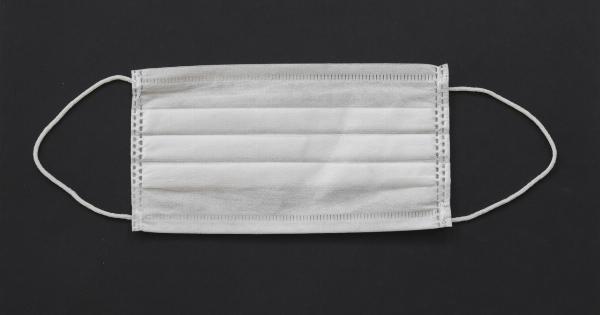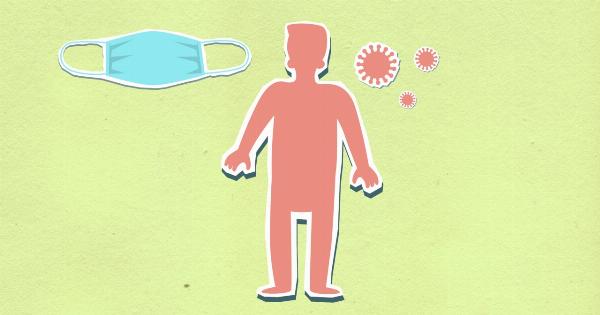A deep cough can be an annoying symptom that can last for days or even weeks. It can be a sign of a respiratory infection, such as bronchitis, pneumonia, or the flu. But in most cases, it’s just a common cold.
Whatever the cause, a deep cough can be uncomfortable and disruptive to your daily activities, making it difficult to sleep, talk, or breathe properly. There are, however, ways to relieve that discomfort and help you get back to feeling like yourself!.
What Causes a Deep Cough?
A cough is a reflex action that helps to clear your airways of irritants, such as mucus, allergens, and foreign particles.
When these irritants enter your respiratory system, they trigger a series of reactions that cause your throat and chest to contract forcefully, expelling the irritants out of your body.
A deep cough is usually associated with an infection or inflammation in the lungs or airways. Some of the most common causes of a deep cough include:.
- Bronchitis: a viral or bacterial infection that causes inflammation and mucus production in the bronchial tubes.
- Pneumonia: a bacterial infection that causes inflammation in the lungs and the formation of fluid or pus.
- Asthma: a chronic respiratory condition characterized by inflammation and narrowing of the airways.
- Allergies: an overreaction of the immune system to external triggers, such as pollen, dust, or pet dander.
- COPD: a chronic respiratory disease that causes airflow obstruction and breathing difficulties.
- GERD: gastroesophageal reflux disease, a digestive disorder that causes stomach acid to flow back into the esophagus, triggering coughing.
How to Relieve a Deep Cough
If you have a deep cough, there are several ways to alleviate the discomfort and promote healing:.
Stay Hydrated
Drinking plenty of fluids can help to loosen mucus and soothe your throat. Aim for at least eight glasses of water a day, and avoid drinks that can dehydrate you, such as coffee, tea, and alcohol.
Use a Humidifier
A humidifier can add moisture to the air, reducing irritation in your throat and airways. Keep it clean and change the water regularly to prevent the growth of bacteria and mold.
Take Medications
There are several over-the-counter medications that can help to relieve a deep cough, such as:.
- Cough suppressants: such as dextromethorphan or codeine, can help to reduce the frequency and intensity of coughing.
- Expectorants: such as guaifenesin, can help to thin and loosen mucus, making it easier to cough up.
- Corticosteroids: such as prednisone, can help to reduce inflammation in the airways and promote healing.
- Bronchodilators: such as albuterol, can help to relax the muscles in the airways and improve breathing.
Try Home Remedies
There are also several home remedies that can help to relieve a deep cough, such as:.
- Honey: can help to soothe the throat and reduce coughing.
- Ginger: can help to reduce inflammation and promote healing.
- Lemon: can help to thin and loosen mucus, making it easier to cough up.
- Steam inhalation: can help to moisturize the airways and reduce irritation.
When to See a Doctor
If your deep cough persists for more than a week, or if you experience any of the following symptoms, it’s important to see a doctor:.
- Fever above 100.4 F
- Chest pain
- Shortness of breath
- Blood in your mucus
- Wheezing or high-pitched breathing sounds
These symptoms could be a sign of a more serious underlying condition that requires medical attention.
Prevention Tips
The best way to avoid getting a deep cough is to prevent respiratory infections from happening in the first place. Here are some tips to keep your respiratory system healthy:.
- Wash your hands frequently with soap and water for at least 20 seconds
- Avoid touching your face, especially your eyes, nose, and mouth
- Cover your mouth and nose with a tissue or sleeve when you cough or sneeze
- Avoid close contact with others who are sick
- Get vaccinated against the flu and pneumonia
- Eat a healthy diet rich in fruits and vegetables to boost your immune system
Final Thoughts
A deep cough can be uncomfortable and disruptive, but there are ways to alleviate the discomfort and promote healing. If your symptoms persist or worsen, be sure to see a doctor.
And always practice good respiratory hygiene to prevent respiratory infections from happening in the first place!.




























